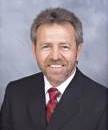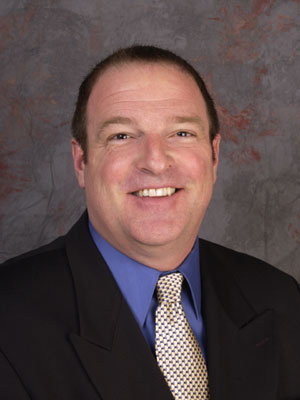

Become A Hero To LB Animals With A $15 Membership. Learn About Us, Click Here.

Saving Lives Thru Spay/Neuter & Education





3853 Atlantic Ave.
|
Click here |
House Energy Committee Declines To Delete Parts of Fed'l Energy Bill Giving FERC Superiority Over State & Local Bodies re LNG Siting
(April 13, 2005) -- The House Energy & Commerce Committee on April 12 defeated an effort by House Democrats to delete part of a major federal Energy Bill -- stemming from actions involving the Port of LB -- that would give the Federal Energy Regulatory Commission (FERC) authority to decide where and on what time schedule Liquefied Natural Gas (LNG) facilities are built nationwide.
On an 18-35 vote, the House Committee defeated an amendment offered by Congressman Ed Markey (D., MA) that sought to delete verbiage (posted below) that would effectively prevent the state bodies (such as the CA Public Utilities Commission, CPUC) from deciding LNG facility siting issues, giving FERC clear decisionmaking superiority and relating state agency enforcement of safety laws into FERC consulting with state and local bodies (listening to CPUC but not necessarily taking its advice).
"This bill, as written, targets virtually every single legal argument that the state of California and the other states have put forth in their suits against FERC over the Long Beach LNG proposal and any other states' proposal," Congressman Markey said, adding:
It's a direct targeting of them...[T]his is essentially a bill written from the brief of the companies that are rejecting the state of California and the state of Rhode Island, and the state of Massachusetts and other states that are trying to ask questions under the existing law. And especially the provisions that say that remote siting should be the way to go. Offshore siting should be the way to go. But not [siting LNG facilities] in a densely populated urban area. When and if a terrorist attack or an accident occurs, no one's calling the FERC police. No one's calling the FERC EMT's. No one's calling the FERC fire department. State and local communities have every right to be able to raise legitimate questions about the ability of a community in a densely populated urban area to respond to an accident, to respond to a terrorist attack...
LBReport.com provides extended transcript excerpts of salient parts of the Committee meeting below. (Our transcript is unofficial, prepared by us from the Committee's webcast of the hearing.)
The bill turned usual Republican and Democrat positions on their heads...with GOP members urging federal supremacy to override states to promote a national policy...while Democrats backed the rights of state bodies to defend local interests.
House Energy Committee chair Joe Barton (R., TX) called the bill's LNG provisions "one of the most important elements in the bill."
During presentation of his amendment, Cong. Markey said:
We made a mistake long ago. We didn't think through the consequences of having an LNG facility in the most densely populated part of the United States outside of Manhattan...
[shows photo of LNG tanker at Boston harbor area LNG facility] The photograph which I put up in front of the committee is an LNG facility, an LNG tanker, coming into Boston. This shot is being taken right from Boston harbor. In the background right over the tanker you can see East Boston High School. You can see the people who are now living out on the docks of Boston. There are millions of people who live within a very short distance from where that LNG facility is presently located. Now the reality is, that if there was a successful terrorist attack at that [LNG] tanker or the facility where it will unload its payload, there is no question that it would be a catastrophic event that would match a nuclear power plant meltdown...
....If one of these facilities is rumored to be coming near your hometown, you have never faced an issue like this in your lives. And if there has been a vote in this committee that you have stripped your state and your local Mayor...from even participating in the process, it will be a political controversy unlike any that any of you have ever been faced with,..
...There is a need for this type of energy. I agree with that. We should have it, and it should come in in very, very large quantities. But we're going to have to balance our need for the energy with our need for the energy with our need, as well, to deal with the health and safety issues that are related to it. Chairman Barton responded in part, "There has been some concern that the Federal Energy Regulatory Authority [Agency] doesn't have ultimate authority to site these facilities. The state of California has objected to it, several other states [have also objected]...But the clear and simple fact is that it is in interstate, even international, commerce and I think it is imperative that we clarify that the federal authority is preeminent..."
During the hearing, supporters of the Markey amendment cited correspondence from the CA Public Utilities Commission and from Lt. Governor Cruz Bustamante. The letter from Lt. Gov. Bustamante, a Democrat, had not been widely publicized until the hearing.
"The proposed energy legislation is a threat to our state's environmental autonomy and coastal stewardship," Lt. Gov. Bustamante wrote in a March 23 letter to Congresswoman Anna Eshoo (D., Palo Alto), charging that the legislation would rewrite the Outer Continental Shelf Lands Act "to grant the federal administration sweeping new authority over California's coastal management and role in planning for coastal development...This invasion of states' rights would eliminate California's ability to adequately protect our coast."
Regarding the LNG issue, Lt. Gov. Bustamante wrote, "Another concern to Californians is the federal government's effort to strip the state of the ability to determine the siting of liquefied natural gas (LNG) facilities. The state should be able to play a meaningful role in determining the appropriate location of any gas terminal within the state's boundaries."
Coastal states are among the most impacted by the bill's LNG provisions as well as its Coastal Zone Management sections. Part of Energy bill gives FERC new prerogatives on Coastal Zone Management issues regarding gas pipelines...and a separate effort to delete this verbiage also failed...even though Democrats said Florida Governor Jeb Bush opposed the FERC Coastal Zone language.
LBReport.com asked CA Gov. Schwarzenegger's press office near the end of the April 12 business day for comment on the Energy bill's LNG provisions; a response is pending as we post [and will be added here when received]. In December 2004, LBReport.com received a polite "no comment" when we asked for the Governor's comment(s) on the CPUC v. FERC LNG issue.
Congressmembers Henry Waxman (D., LA), Lois Capps (D., Santa Barbara), Hilda Solis (D. El Monte/ELA) and Anna Eshoo (D., Palo Alto) spoke in favor of Cong. Markey's amendment and voted for it. Cong. Mary Bono (R., Palm Springs) didn't speak and voted against the proposed amendment.
Some excerpts of the Committee discussion:
[The bill] short-circuits ongoing litigation between the FERC and the CA PUC about who has the authority over the siting of an LNG facility near commercial and residential areas at the Port of Long Beach...
Cong. Capps: ...This is a wholesale attempt to allow FERC to override any state objections to the agency's decisionmaking authority on LNG facilities. The provision takes aim squarely at a lawsuit now in the 9th circuit between FERC and the California PUC.
As you know, the California Public Utilities Commission current litigation with the FERC concerns a proposed LNG facility at one of the busiest ports in the world: the Port of Long Beach...
This administration's lack of attention of attention to the issue of security at our nation's ports should give us all pause as we consider the size and potential impact of these facilities...
I know that California's dismal experience with FERC a few years back might color my perception. We all remember too well when the agency sat on its hands while out of state power companies robbed our state blind. Based on this record I'm very skeptical about giving them exclusive jurisdiction over the siting of these proposed terminals...
Cong. Green: ...I sat during the Democratic convention and watched one of these [LNG] tankers...leaving Boston harbor, and it had more security than any of the tankers that leave the port of Houston that carry jet fuel that are much more volatile than LNG...
Cong. Terry: ...What it [the bill] means is that the locality that could issue a permit for environmental reasons, or perhaps just a city occupancy, they can't veto or have veto power over this type of siting facility now...If you extract one thing from the comments that I boil this down to is..."not in my backyard"...
Cong. Solis: ...I too want to support the Markey amendment to protect the rights of our states and communities...The underlying language which strips the rights of states like California to be an active player in the siting of a [LNG] facility within its borders is outrageous...And LNG facilities have been identified as extremely vulnerable to terrorist attack because the infrastructure is highly visible and easily identifiable. In July 2002, Moroccan authorities disrupted an Al Queda attempt to attack U.S. and British warships travelling through the same straits as an LNG tanker...By removing communities and first responders from siting decisions, we would be handicapping the abilities of our communities to react and respond...
...Cong. Barton: ...There is going to be all kinds of input at every level. FERC is the expediting agency and the centralizing agency but all the other state and federal agencies that have existing permitting authority would continue to have those permitting authorities if this bill were to become law.
Cong. Markey [close]...I appreciate the fact that each member on the Committee, on a bipartisan basis from Texas, is representing the natural gas industry. And you're doing your job by the way, that's your job on this Committee. Texas' job is to represent the natural gas industry on this Committee and they're doing a great job.
The problem with their arguments, however, is that Texas really doesn't have any jurisdiction over Boston harbor, or Long Beach harbor, or Seattle or any other part of this country. They want to sell natural gas; that's their job...
...This bill, as written, targets virtually every single legal argument that the state of California and the other states have put forth in their suits against FERC over the Long Beach LNG proposal and any other states' proposal. It's a direct targeting of them...[T]his is essentially a bill written from the brief of the companies that are rejecting the state of California and the state of Rhode Island, and the state of Massachusetts and other states that are trying to ask questions under the existing law.
And especially the provisions that say that remote siting should be the way to go. Offshore siting should be the way to go. But not in a densely populated urban area.
When and if a terrorist attack or an accident occurs, no one's calling the FERC police. No one's calling the FERC EMT's. No one's calling the FERC fire department. State and local communities have every right to be able to raise legitimate questions about the ability of a community in a densely populated urban area to respond to an accident, to respond to a terrorist attack...
...The way this bill is written is that it is going to preempt the states for the purpose of taking care of the natural gas industry and their desire to put LNG facility, just like that, squeezed into urban areas all across our country...
I tell you, ladies and gentlemen, this is about as bad as it's going to get I've heard from..the Texas members how 'this could be the single most important thing that we do in the energy bill,' we had no hearing on it! How do you do 'the single most important thing in the energy bill' and have no hearings on it?...If we had a hearing on this, the Governors would be sitting all the way across...that had a coastline...Anyone that had a coastline would be here or else they would face the wrath of their voters...
As LBReport.com reported on April 7, LB City Attorney Bob Shannon said of the bill's LNG/FERC section, "We are very concerned about the potential in this bill to take away state jurisdiction as well as affecting the right of the City Council to review appeals on the LNG EIR/EIS [Environmental Review documents]."
Although the Energy bill doesn't include eminent domain (which had been opposed by the Port of LB and LB City Hall), the legislation would substantively affect rights under the CA Environmental Quality Act (CEQA), possibly leaving little if anything for appeal and review by the City Council. The City Attorney's office says that as landlord, the Port of LB (via its non-elected Board of Harbor Commissioners) continues to have the power to decide whether to approve locating the LNG plant on its land.
Bry Myown, an opponent of siting an LNG facility in the Port of LB, warned last year that the Port of LB's conduct had invited a "test case" in which LB and cities nationally might lose their ability to say "no."
The LB LNG issue gained national attention after a Mitsubishi subsidiary, "Sound Energy Solutions," applied to FERC -- but not to the CA Public Utilities Commission -- for permission to build and operate an 80+ million gallon LNG terminal in the Port of LB. The Port of LB advanced the firm's FERC application...during which FERC said it SES didn't need CA authority because FERC exclusive decision making jurisdiction.
CPUC sued FERC in federal court, seeking to enforce CA law (the case is pending). The now-pending Congressional action could make the CPUC's court case moot.
In November 2004, LBReport.com wrote:
"In my view, LB's Board of Harbor Commissioners, and the City of LB, have a duty under the state constitution to uphold CA law," Ms. Myown said, noting "By facilitating the application solely through FERC, the Port of LB has effectively taken a position against CA's Public Utilities Commission...and the Port's action now threatens to become a position against local control."
She added, "The Port of LB could have the distinction of helping deprive communities across the U.S. of control over LNG facilities in their areas. Members of the U.S. Conference of Mayors ought to question whether Mayor Beverly O'Neill should speak for them on this issue."...
LB is believed to be the only CA community in which an onshore LNG application is currently being entertained. Plans for an onshore LNG facility in Eureka, CA were abandoned amid community opposition. A proposed LNG facility in Vallejo, CA (on the former Mare Island Naval Shipyard site) was likewise dropped following local resistance... Additional coverage of the House Energy Committee's actions: Reuters: U.S. House Panel Votes on LNG, Oil Reserve.
Below is the House bill's LNG text:
(11) ‘Liquefaction or gasification natural gas terminal’ includes all facilities located onshore or in State waters that are used to receive, unload, load, store, transport, gasify, liquefy, or process natural gas that is imported to the United States from a foreign country, exported to a foreign country from the United States, or transported in interstate commerce by waterborne tanker, but does not include:
(d) AUTHORIZATION FOR CONSTRUCTION, EXPANSION, OR OPERATION OF LIQUEFACTION OR GASIFICATION NATURAL GAS TERMINALS.
(1) COMMISSION AUTHORIZATION REQUIRED. No person shall construct, expand, or operate a liquefaction or gasification natural gas terminal without an order from the Commission authorizing such person to do so.
(2) AUTHORIZATION PROCEDURES.
(A) NOTICE AND HEARING. Upon the filing of any application to construct, expand, or operate a liquefaction or gasification natural gas terminal, the Commission shall
(B) DESIGNATION AS LEAD AGENCY.
(i) IN GENERAL. The Commission shall act as the lead agency for the purposes of coordinating all applicable Federal authorizations and for the purposes of complying with the National Environmental Policy Act of 1969 (42 U.S.C. 4312 et seq.) for a liquefaction or gasification natural gas terminal.
(ii) OTHER AGENCIES. Each Federal agency considering an aspect of the construction, expansion, or operation of a liquefaction or gasification natural gas terminal shall cooperate with the Commission and comply with the deadlines established by the Commission.
(C) SCHEDULE.
(i) COMMISSION AUTHORITY TO SET SCHEDULE. The Commission shall establish a schedule for all Federal and State administrative proceedings required under authority of Federal law to construct, expand, or operate a liquefaction or gasification natural gas terminal. In establishing the schedule, the Commission shall
(II) the agency has failed to act on any remand by the Court within the deadline set by the Court, that approval may be conclusively presumed by the Commission.
(D) EXCLUSIVE RECORD. The Commission shall, with the cooperation of Federal and State administrative agencies and officials, maintain a complete consolidated record of all decisions made or actions taken by the Commission or by a Federal administrative agency or
officer (or State administrative agency or officer acting under delegated Federal authority)
with respect to the construction, expansion, or operation of a liquefaction or gasification natural gas terminal. Such record shall be the exclusive record for any Federal administrative proceeding that is an appeal or review of any such decision made or action taken.
(E) STATE AND LOCAL SAFETY CONSIDERATIONS.
(i) IN GENERAL.—The Commission shall consult with the State commission of the State in which the liquefaction or gasification natural gas terminal is located regarding State and local safety considerations prior to issuing an order pursuant to this subsection and consistent with the schedule established under subparagraph (C)
The State commission of the State in which a liquefaction or gasification natural gas terminal is located may, after the terminal is operational, conduct safety inspections with respect to the liquefaction or gasification natural gas terminal if
(I) the State commission provides written notice to the Commission of its intention to do so; and
(II) the inspections will be carried out in conformance with Federal regulations and guidelines. Enforcement of any safety violation discovered by a State commission pursuant to this clause shall be carried out by Federal officials. The Commission shall take appropriate action in response to a report of a violation not later that 90 days after receiving such report.
(iii) STATE AND LOCAL SAFETY CONSIDERATIONS. For the purposes of this subparagraph, State and local safety considerations include:
(I) the kind and use of the facility;
(3) ISSUANCE OF COMMISSION ORDER.
(A) IN GENERAL. The Commission shall issue an order authorizing, in whole or in part,
the construction, expansion, or operation covered by the application to any qualified
applicant
(i) unless the Commission finds such actions or operations will not be consistent
with the public interest; and
(I) able and willing to carry out the actions and operations proposed; and
(B) TERMS AND CONDITIONS. The Commission may by its order grant an application, in whole or in part, with such modification and upon such terms and conditions as the Commission may find necessary or appropriate.
(C) LIMITATIONS ON TERMS AND CONDITIONS TO COMMISSION ORDER.
(i) IN GENERAL. Any Commission order issued pursuant to this subsection before January 1, 2011, shall not be conditioned on:
(I) a requirement that the liquefaction or gasification natural gas terminal offer service to persons other than the person, or any affiliate thereof, securing the order; or
(II) any regulation of the liquefaction or gasification natural gas terminal’s rates, charges, terms, or conditions of service.
(ii) INAPPLICABLE TO TERMINAL EXIT PIPELINE.
Clause (i) shall not apply to any pipeline subject to the jurisdiction of the Commission under section 7 exiting a liquefaction or gasification natural gas terminal.
(iii) EXPANSION OF REGULATED TERMINAL. An order issued under this paragraph that relates to an expansion of an existing liquefaction or gasification natural gas terminal, where any portion of the existing terminal continues to be subject to Commission regulation of rates, charges, terms, or conditions of service, may not result in
(I) subsidization of the expansion by regulated terminal users;
Related: LBReport.com archived LNG coverage
Contact us: mail@LBReport.com |